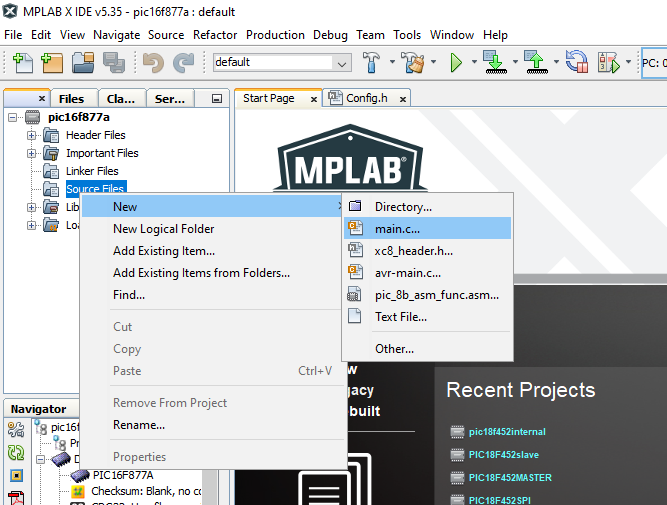

To migrate an existing MPLAB8 project to MPLABX, one needs to use the included wizard


Linux 32-bit $ chmod 755 mplabxidebeta32.bin mplabc30.binįiles will be installed in /opt/microchip MPLAB C Compiler for dsPIC DSCs and PIC24 MCUs (Lite).Visit and get the following components for your preferred OS (in this case the MPLAB X IDE and C30 compiler): There is also a wiki of Microchip around MPLAB X. MPLAB X Beta and the lite versions of the compilers are free (as in free beer).MPLAB C18 compiler is available for Windows and Linux for now but Mac OS X support will follow soon.MPLAB C32 (for PIC32MX) and C30 (for PIC24 and dsPIC) compilers are also available.Supported under Windows, Linux and Mac OS X 10.5 and Mac OS X 10.6.See here (pdf) for a short introduction to this new IDE. And not some time limited version.MPLAB X is the next version of the Microchip development software for PIC microcontrollers, succeeding MPLAB 8.60.Īt the moment it's still in the Beta phase.

Here is the best part, both MPLAB/HI-TECH C Compiler and MPLAB X/XC8 compiler are all free to download. Underneath the XC8 though is mostly the HI-TECH C compiler so your code transfers easily. the Microchip XC8 compiler has been released with the MPLAB X to replace the HI-TECH C compiler. This was a third party compiler that Microchip bought. The C Compiler used with MPLAB for the 8-bit PIC devices, that we focus on here at this site, is name the HI-TECH C compiler. The differences are many and one of the biggest is that MPLAB X will run on Windows, Linux or Mac while the original MPLAB only runs on Windows. MPLAB is the software recommended to write software for the Microchip PIC devices and it now has been updated to MPLAB X. C Programming is just like any other compiler including the BASIC compilers in that it takes a higher level of programming language and converts it to assembly code that gets assembled into the 1's and 0's that get programmed into the Microchip PIC device. Getting Started with C Programming of Microchip PICs is made simpler with my book series "Beginner's Guide to Embedded C Programming.


 0 kommentar(er)
0 kommentar(er)
